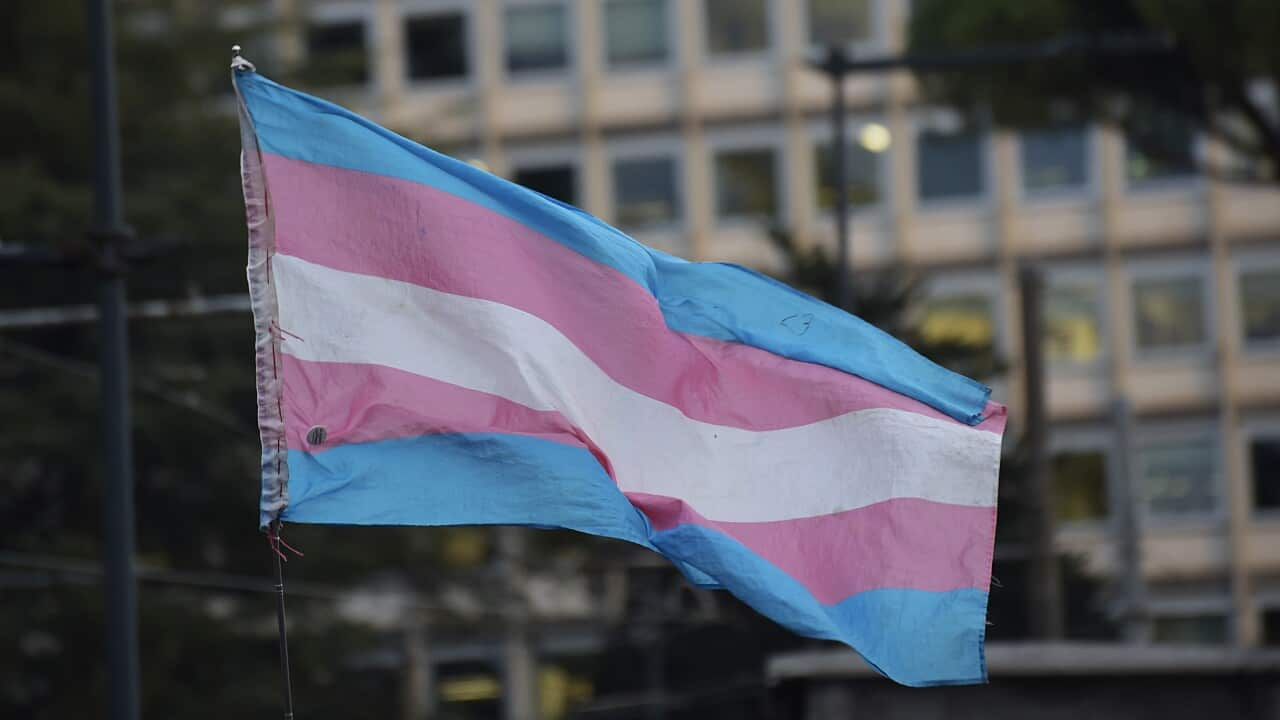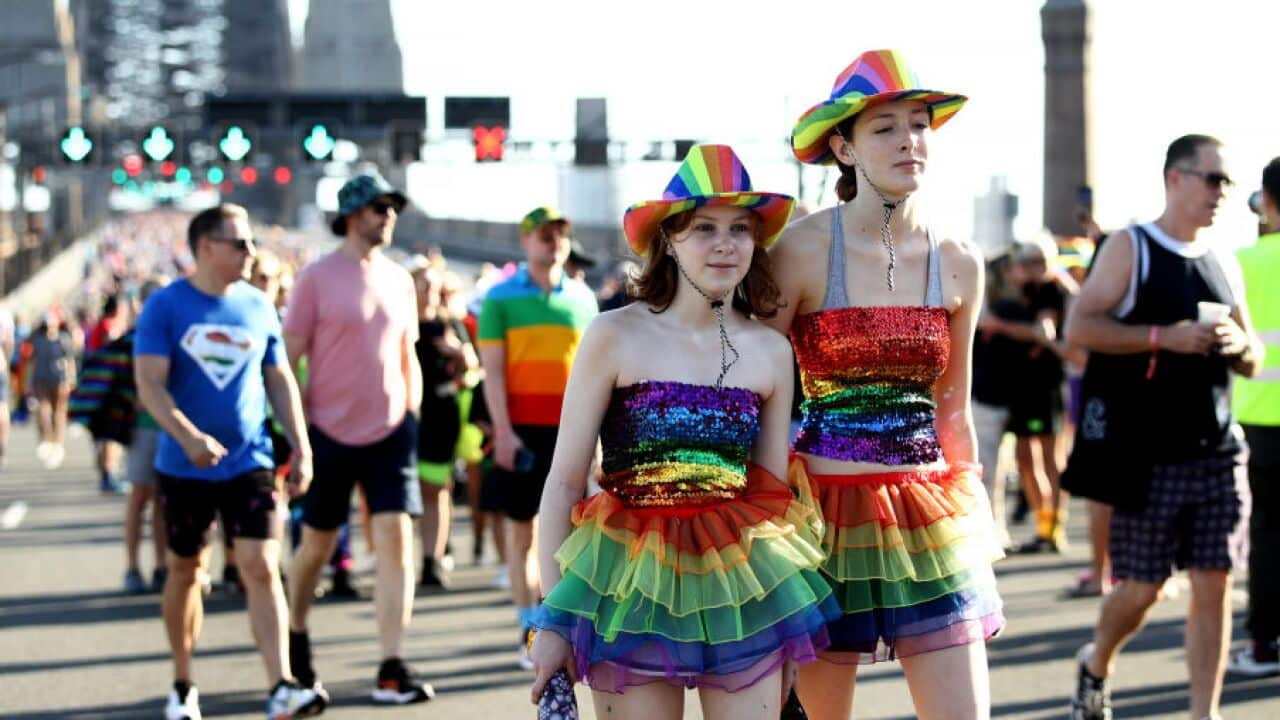This article contains references to suicide among the trans and gender diverse community.
There are calls for tailored care and support for the transgender and gender diverse community ahead of an inquest into the deaths of five Victorians during the COVID-19 pandemic.
On Monday, the state’s Coroners Court will start an inquest into the deaths of five trans or gender diverse people in 2020 and 2021. According to court documents, evidence indicates all five people had experienced mental ill health, and took their own lives.
The five who died had all affirmed, or were on a journey of affirming, their gender identity as female. Some were known to each other.
The inquest hopes to make “appropriate, evidence-based recommendations aimed at improving treatment, care and supports for the trans and gender diverse community,” an opening summary of a directions hearing states.
“We are sad that the inquest is happening, but we welcome it,” said Anna Bernasochi, suicide prevention manager at Switchboard Victoria — a not-for-profit organisation that provides services for LGBTIQ+ communities.
“This is one of the first times there has been recognition at a systems level that the experiences of suicidal distress among transgender people are not okay — and that our communities deserve better.”
Bridget Flack remembered for creative pursuits, 'pride in being trans'
The lead case to be considered in the inquest is Bridget Flack,
She is remembered for her creative pursuits, such as writing, art and music, and is described as “ultimately expressing comfort and pride in being trans (while also exploring the struggles)”, according to an opening summary of a directions hearing.
Bridget worked in social activism and was a DJ.
Before her death, she had been diagnosed with multiple mental health conditions, including borderline personality disorder, complex post-traumatic stress disorder, anxiety and depression.
Bridget reported feeling increasingly isolated during the COVID-19 pandemic.
According to the court summary, Bridget had contact with several mental health service providers in the lead-up to her death and was attempting to make arrangements for admission to a private hospital. However, she was unsuccessful and a plan was made to seek outpatient referral via her GP.
The same day, Bridget told a friend she was going for a walk, but did not return to that friend’s home. She was reported missing the next day.
Hundreds of members of the LGBTIQ+ community joined a search for Bridget. She was found by community members 10 days later.
The inquest will consider how Victoria Police handled the search for Bridget and its policies, procedures and training relating to the trans and gender diverse community.
The court will also examine the deaths of Heather Pierard, Matt Byrne, Natalie Wilson and a fifth person who will be referred to as ‘AS’.
Following consultation with loved ones, the court will be referring to the five people by way of their preferred names and gender.
'Urgent' need for a plan, says peak body
Transgender Victoria, the state's peak body for trans and gender diverse people, will appear at the inquest and is urging policymakers and the public to provide greater support for the communities it represents.
It said the "devastating loss of these lives" highlights the urgent need for action to address the lack of appropriate mental, physical and social support for trans and gender diverse individuals.
“The numbers of transgender and gender diverse people choosing to affirm their gender is growing exponentially, and we are facing a crisis due to the limited amount of funding received by these communities," said chief executive Son Vivienne.
“There is no plan at a state and federal level to address this crisis and there is an urgent need for one.”
Transgender Victoria will appear at the inquest, alongside health experts and other LGBTIQ+ support groups, including those with expertise in suicide prevention.
Trans and gender diverse people 'can and do thrive'
Switchboard Victoria runs several peer-based services to support its community, including a seven-day-a-week helpline and specialist helpline, along with a suicide prevention program.
LGBTIQ+ people are at higher risk of suicidal behaviours than the general population in Australia, according to an interim report of the Royal Commission into Victoria's Mental Health System.
Last year, the Victorian Coroners Court released a report — in consultation with the Office of the Commissioner for LGBTIQ+ Communities, the state health department and Switchboard — revealing 208 LGBTIQ+ people had died by suicide in the state between 2012 and 2021.
It also said the actual figure was likely to be higher due to challenges in identifying LGBTIQ+ people among deaths investigated by coroners.
Through Switchboard Victoria's work “we know that data is an under-count”, Bernasochi said.
She said it's important to understand that the high rates of suicidality in this community had "nothing to do with the person being trans and gender diverse".
"It is about how [they] are treated," she said, stressing the importance of having systems in place to support those who are bereaved following an LGBTIQ+ suicide.
"What we understand is that trans and gender diverse people can and do thrive. They thrive when they are connected with other trans and gender diverse people and the LGBTIQ+ community .... they can thrive when loved by their family, when they have access to healthcare, including gender-affirming care.
"When you get recognition from a coronial inquest that there needs to be change, my hope is that governments and mental health care providers and other key parts of the system will listen and become more involved in helping us with our work."
She said she hopes the inquest will "illuminate experiences of discrimination" faced by the trans and gender diverse community.
'A significant amount of change across all parts of community' required
"I think what the inquest signifies is that systemically, more needs to be done to address these issues," she said.
Bernasochi is calling for training along with tailored services and programs that are led by and for LGBTIQ+ people.
"When people are in acute distress, people need to feel connection. If you are carrying fears around being discriminated against, or someone not understanding them, then I think it's really understandable that it can make it very difficult to go to a service," she said.
She said a lot of trans and gender diverse people have not had welcoming or positive experiences in mainstream services.
"We need to respond collectively. More people need to be invested in this than just our LGBTIQA+ communities, because it's going to take a significant amount of change across all parts of community to address systemic discrimination."
The inquest will examine the incidence of mental ill health and suicidality in the trans and gender diverse community, including availability and access to culturally-appropriate gender-affirming care, suicide prevention and social and emotional wellbeing support in the state.
It is due to run for four days.
Victoria Police and the Victorian Commissioner for LGBTIQ+ Communities are also expected to provide evidence.
Readers seeking crisis support can contact Lifeline on 13 11 14, the Suicide Call Back Service on 1300 659 467 and Kids Helpline on 1800 55 1800 (for young people aged up to 25). More information and support with mental health is available at and on 1300 22 4636.
supports people from culturally and linguistically diverse backgrounds.
LGBTIQ+ Australians seeking support with mental health can contact QLife on 1800 184 527 or visit . also has a list of support services.












